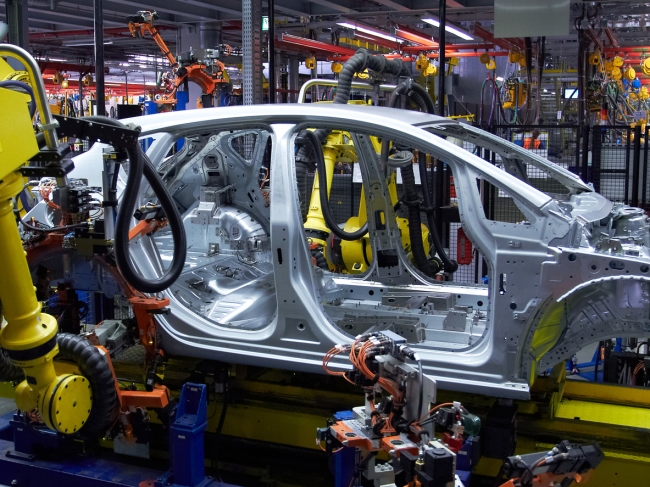2 minute read - 31st March 2023
British car manufacturing output rises 13.1% in February
UK car production rose 13.1% in February, up to 69,707 units, according to the latest figures published by the Society of Motor Manufacturers and Traders (SMMT). Factories made an additional 8,050 cars, with volumes buoyed by an easing of supply chain shortages – notably of semiconductors – which have challenged the global industry since the early months of 2021.
Production for both home and overseas markets rose by double digits, up 20.3% and 11.5% respectively, with exports driving the overall uplift. Some 56,634 cars were produced to fulfil global orders, up from 50,786 a year before and accounting for 81.2% of output, with the majority of these exports (59.6%) heading into the UK’s largest trading partner, the EU.
Shipments to the EU rose 6.5%, helping to offset declines to the US (-19.9%) and China (-21.6%), providing further evidence of the need for continued free trade across the Channel. Exports to Turkey, Japan, Australia and South Korea, meanwhile, also rose, collectively by 85.0%, and together represented a total of 6,498 cars, or 11.5% of exports.

British car manufacturing output was up 13.1% in February with 69,707 vehicles produced / Picture: Getty/iStock
The UK’s automotive industrial transition to hybrid, plug-in hybrid and battery electric vehicles continued, with combined volumes surging 72.2% from 15,905 to a total of 27,392 units and accounting for two in five (39.3%) cars produced in the month. Ramping up output of these vehicles still further is crucial, and a new SMMT member survey reveals that nine in 10 firms want measures to deliver low carbon and cost-effective energy supply, to help support the transition to zero emission technologies.
In contrast, commercial vehicle production fell by -21.6% in last month, following the best January performance in over a decade as supply chain constraints restricted production in February. As reported last month, volumes are expected to increase significantly throughout the year, notably as new models begin production and a major new electric van manufacturing plant comes on stream.
While automotive businesses are broadly optimistic about the next 12 months, more than eight in 10 report that input and employment costs have risen in the past three months, so action to alleviate cripplingly high and uncompetitive energy costs ranks as their number one concern. Support on business rates, easing supply shortages and access to trade are also all viewed as beneficial for growth.
Mike Hawes, SMMT chief executive, said: “February’s growth in UK car production signposts an industry on the road to recovery. The fundamentals of the sector are strong; a highly skilled workforce, engineering excellence, a sector that is embracing new electrified vehicle manufacturing and wide ranging capabilities in the EV supply chain. To take advantage of global opportunities, however, we must scale up at pace and make the UK the most attractive destination for automotive investment by addressing trading and fiscal costs and delivering low carbon, affordable energy.”